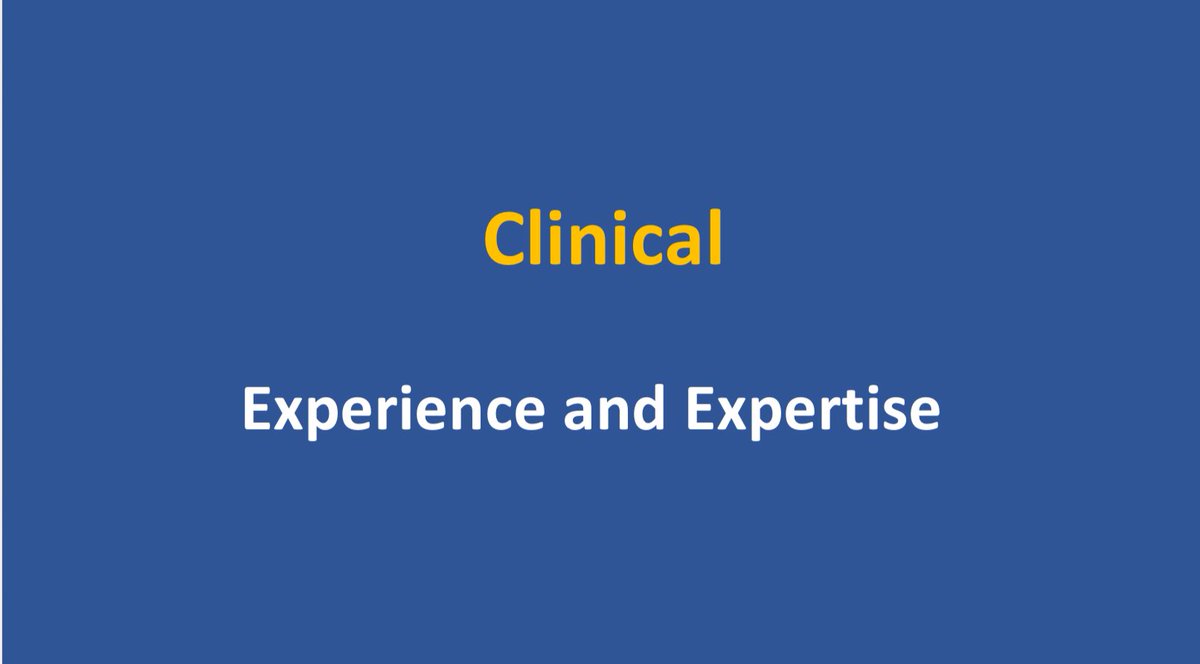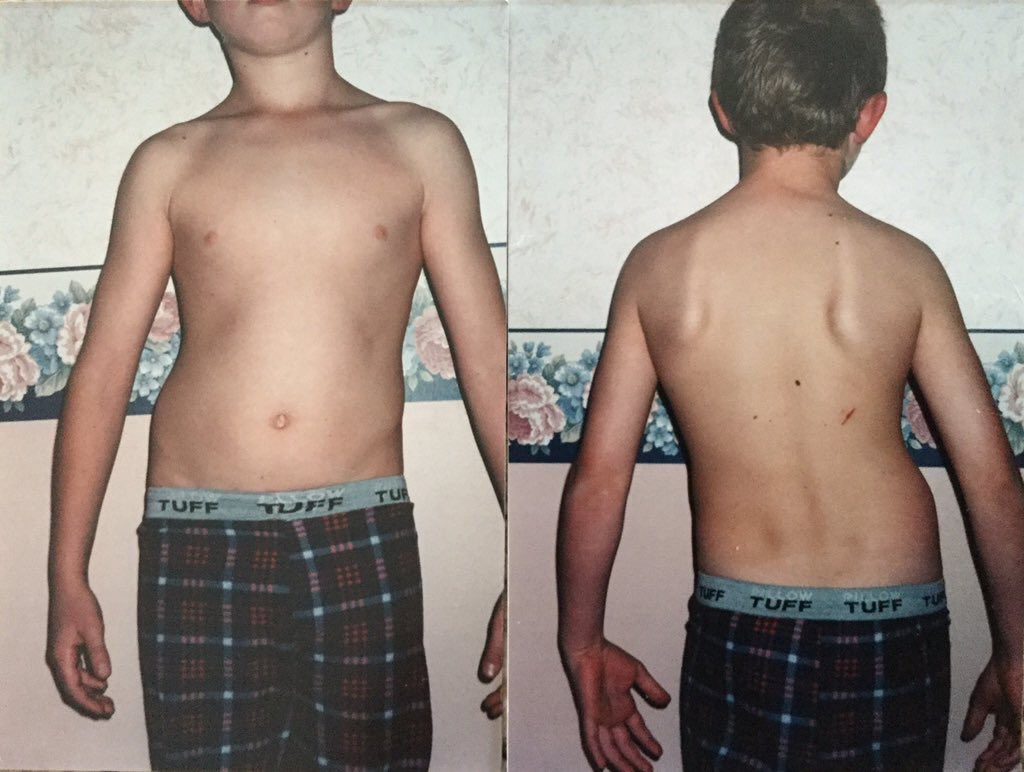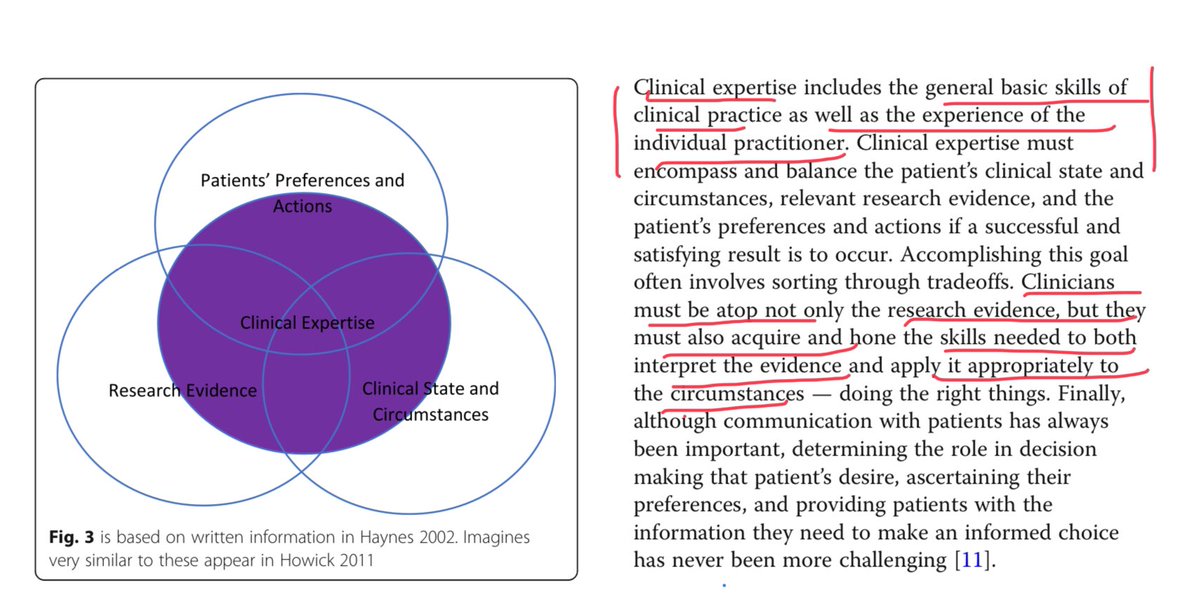Experience and expertise is there a difference?
How does one develop expertise in ones chosen field of clinical care?
Twitter is famous for it’s echo chambers and camps of belief and support. There seems to be a trend that leans away from experience yet not expertise?
A thread
How does one develop expertise in ones chosen field of clinical care?
Twitter is famous for it’s echo chambers and camps of belief and support. There seems to be a trend that leans away from experience yet not expertise?
A thread
Experience is often equated with time in clinical practice. The criticism of the length of time in practice is often that some people can have the same experience over time rather than developing and learning from and growing clinically over time.
We all know someone that is still practising the same way they have done for years, no change, no updating, no effort to be evidence based. The proverbial “clinical dinosaur  https://abs.twimg.com/emoji/v2/... draggable="false" alt="🦖" title="T-Rex" aria-label="Emoji: T-Rex"> “
https://abs.twimg.com/emoji/v2/... draggable="false" alt="🦖" title="T-Rex" aria-label="Emoji: T-Rex"> “
But is this the norm or the exception?
But is this the norm or the exception?
The other side of the coin is the clinician with limited years of experience, yet they promote themselves as and expert in a clinical field. How does one become an expert without temporal experience in clinical practice?
My former mentor Robin McKenzie used to constantly tell me
My former mentor Robin McKenzie used to constantly tell me
“Poulter you can never see enough patients. We learn more from patients than w will ever learn from books.” What Mckenzie was referring to was the practical and important clinical learning of years of practicing with and alert and open mind.
An example of this was highlighted for me last week during a twitter discussion on discussing lumbar shifts with patients and what the mechanism and treatment may be. Some on the thread openly admitted either never having seen or treated a patient with a lumbar shift or...
That they saw them rarely. This is where experience and expertise meld, you can not treat a patients effectively and efficiently if you have limited experience in treating said patients.
Book knowledge expert v clinical expertise. The later requires clinical experience.
Book knowledge expert v clinical expertise. The later requires clinical experience.
This interesting paper addresses and discusses the application of experience, expertise and the current best evidence.
They suggest two types of expertise contributory and interactional. Read text for clarification https://link.springer.com/content/pdf/10.1186/s13010-018-0055-2.pdf">https://link.springer.com/content/p...
They suggest two types of expertise contributory and interactional. Read text for clarification https://link.springer.com/content/pdf/10.1186/s13010-018-0055-2.pdf">https://link.springer.com/content/p...
As the paper discusses the EBM movement arose to counteract the GOBSAT [Good Old Boys Sit Around A Table] . Maybe twitter has become similar to GOBSATs group think and echo chambers espousing just the evidence and ignoring the value of clinical experience and expertise.
I propose expertise requires attentive open minded clinical experiences that are stored by clinicians as heuristics. This expert clinician thus calls on their stored heuristics during the clinical reasoning process. “ I have seen this before” is an experience based statement.
Proposal , clinical experience should be valued when it has lead to a recognised level of expertise. I agree with my old mentor Robin McKenzie, as clinicians we cant see enough patients. Build clinical heuristics, text book cases rarely present in the clinic, humans are comple
Thanks for reading ,

 Read on Twitter
Read on Twitter




